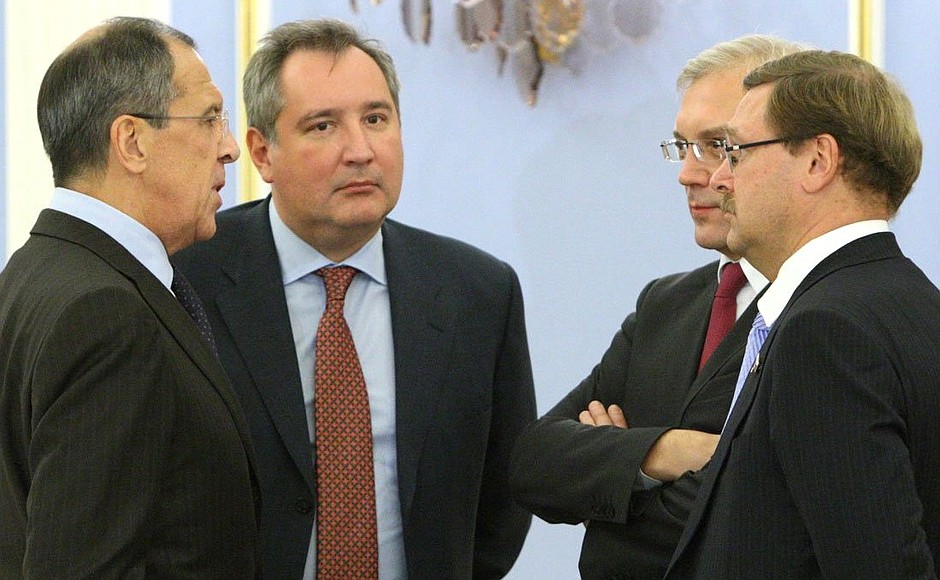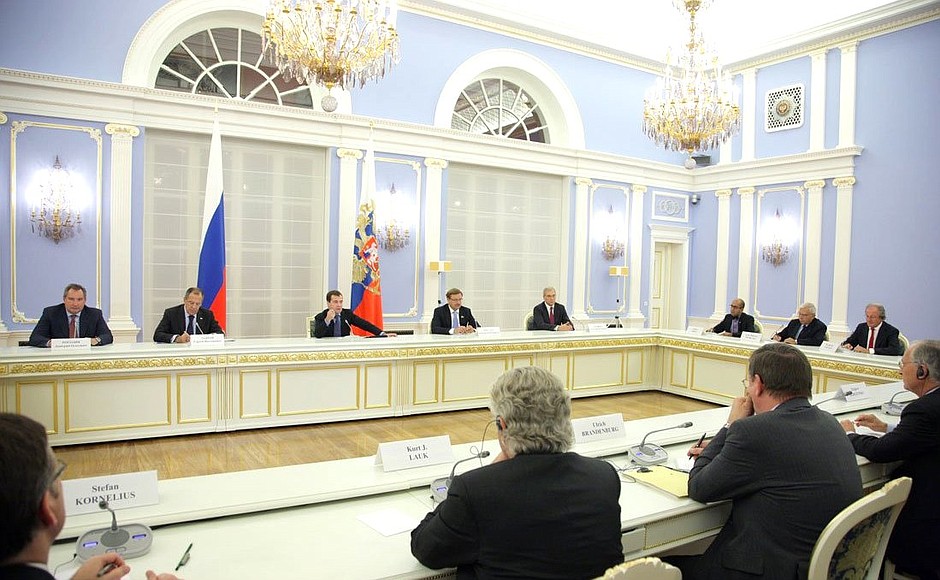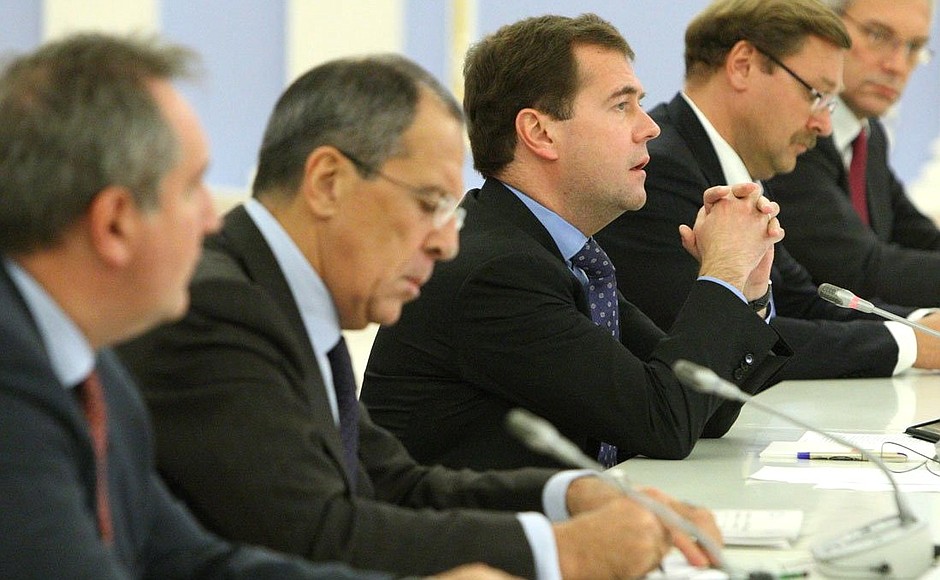In his speech, Dmitry Medvedev stated that relations with Europe are one of the most important vectors in Russia’s foreign policy and emphasised that today, Europe needs to follow a unified European agenda.
Other topics of discussion included current issues concerning European security architecture, taking into account the outcomes of the Russian-French-German summit in Deauville, as well as agendas at the upcoming NATO summit in Lisbon and OSCE summit in Astana. Furthermore, the discussion addressed various issues concerning multilateral cooperation, such as strengthening control over weapons, the problems of disarmament and non-proliferation, and the effects of the global financial and economic crisis on international stability and security.
Among the foreign representatives of the conference’s visiting session were its chairman, Wolfgang Ischinger, counsellor at the Centre for Strategic and International Studies and well-known political scientist Zbigniew Brzezinski, German ambassador to Russia Ulrich Brandenburg, chairman of the economic council of the CDU Kurt Lauk, and Special Assistant to the President of the United States and Senior Director for Russia and Eurasian Affairs at the United States National Security Council Michael McFaul. Other participants in the meeting included former foreign minister of Poland and current expert at the Stockholm International Peace Research Institute Adam Rotfeld, ROSNO insurance company CEO Hannes Chopra, and Parliamentary Secretary to the Federal Ministry of Defence of Germany Christian Schmidt.
Participants on the Russian side included Foreign Minister Sergei Lavrov, Presidential Aide Sergei Prikhodko, Chairman of the State Duma International Affairs Committee Konstantin Kosachev, Russia’s Permanent Envoy to NATO Dmitry Rogozin, Deputy Foreign Minister Alexander Grushko, and Institute of Contemporary Development Chairman Igor Yurgens.
The Munich Conference was founded in 1962 by German publisher Ewald von Kleist as a meeting for defence ministry officials from NATO member states. Today, the Conference is an international forum bringing together politicians, diplomats, military professionals, businesspeople, scientists, and community leaders from over 40 nations around the world. The visiting session of the Munich Conference is being held in the Russian capital for the first time at the initiative of its chairman, Wolfgang Ischinger. This is the second such event; the first visiting session was held in Washington at the end of 2009.


